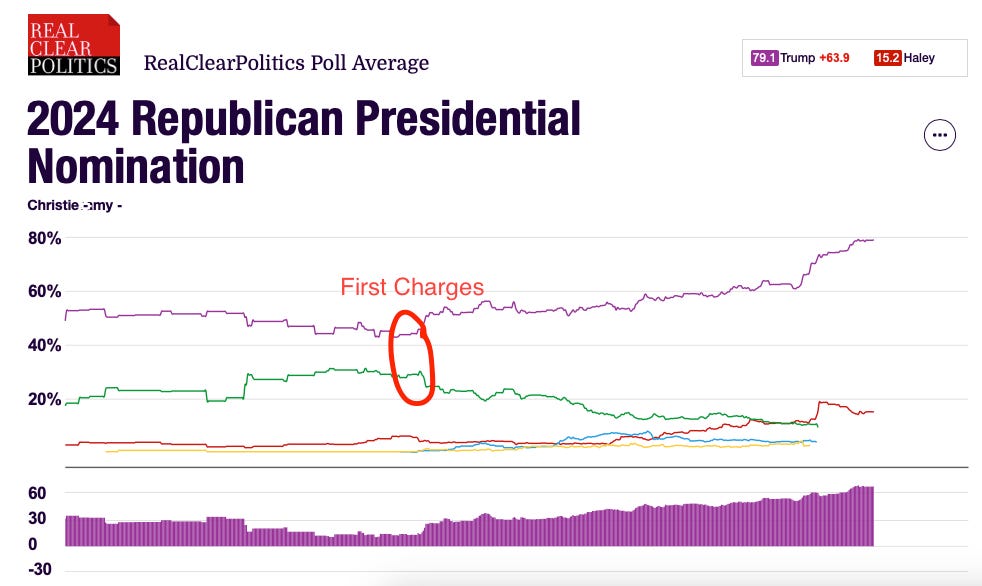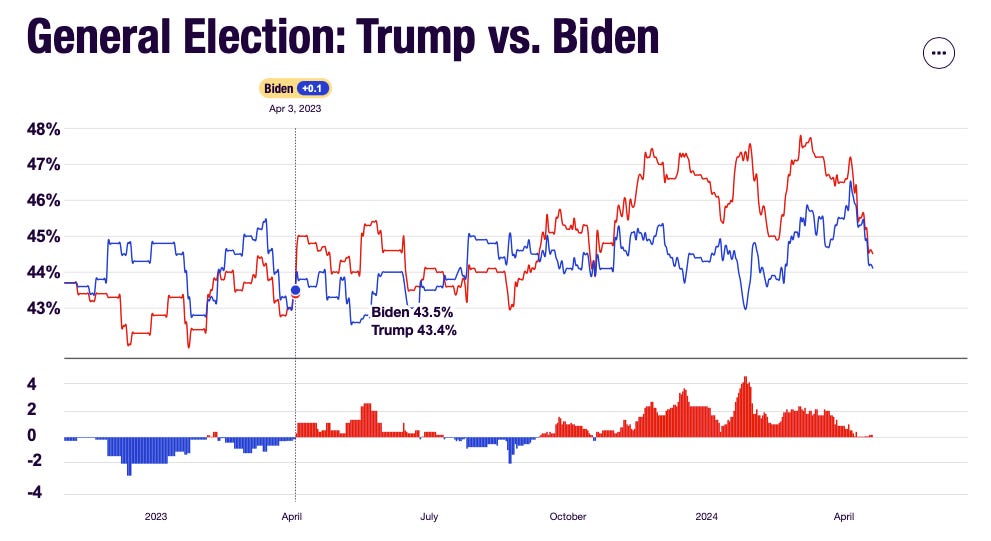Is Trump on trial good or bad for him?
Polling suggests the more 45 is in legal peril the better he does. Will the trend continue?
Donald Trump is on trial. He can’t campaign. He might not see his son graduate high school. He is likely to become a convicted felon.
But if past history tells us about the future, this might bring him closer to returning to the White House.
Trump’s struggles to balance his court appearances with personal and political activities underscore a broader tactic in his 2024 presidential campaign: portraying himself as a victim of a politicized legal system. This strategy aims not only to garner public sympathy but also to energize his base through a narrative of undue persecution, which he amplifies through dramatic fundraising appeals.
Throughout his hush money trial, which began jury selection this week, Donald Trump has repeatedly sought permission from the court to attend various events. His requests ranged from attending his son Barron's high school graduation to participating in Supreme Court hearings and campaign-related activities.
Each time, Judge Juan Merchan’s responses were non-committal or negative, emphasizing the strict demands of legal proceedings over personal schedules.
Trump’s legal entanglements have become a central theme of his campaign narrative, portraying every trial and indictment as an instance of election interference.
We have no idea how this will play out going forward, but if we look to last year, every legal setback Trump fell into benefitted him in the polls.
We know that the Trump Team believes this is a winner. Recently his strategy includes highlighting these challenges in campaign communications, with fundraising texts painting dire scenarios and rallying support by depicting Trump as a relentless fighter against a biased establishment.
One year ago, following the announcement of charges by Manhattan DA Alvin Bragg, Trump saw a significant surge in his lead against Ron DeSantis in Republican primary polls.
Similarly, his lead in general election polling against Joe Biden saw increases following his indictment in New York. These trends suggest that Trump’s legal troubles, paradoxically, might bolster his image among certain voter segments by presenting him as a combatant against a politicized judiciary. April marked the first time Trump began to take a regular lead on Biden in their head to head polls. Something that, aside from June of last year, he’s held. Granted, Biden’s polling has become more competitive lately. But it remains to be seen if Trump being able to reframe himself as the victim again will benefit him.
Moreover, Trump’s focus on personal milestones like his son's graduation is not just about family commitment but also serves as a strategic contrast to his opponent, President Joe Biden, emphasizing Trump's relative youthfulness and active involvement in his family's milestones.
Even though Trump and Biden are not far from each other’s age, Biden last attended a high school graduation as a father to a student in the late nineties.
In essence, Trump’s approach to his legal and political challenges is dual-faceted: it leverages his legal woes as a campaign tool while also using his campaign platform to influence public perception of his legal battles. Whether this will suffice to maintain his lead in the polls remains to be seen, but it clearly defines the narrative he seeks to promote heading into the next election.








